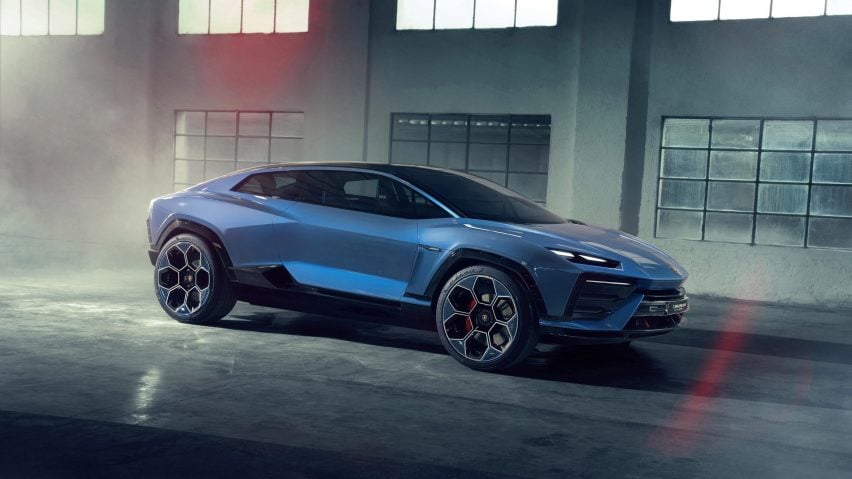Italian sports carmaker Lamborghini has shared its Lanzador concept car – a look ahead at the company's first all-electric vehicle, which is set to go into production from 2028.
Revealed at Monterey Car Week, the concept car is a grand tourer with an electric motor on each axle, providing a peak power of over one megawatt or around 1,341 mechanical horsepower.
Drivers will also be able to adjust the car's driving dynamics, aerodynamics and suspension via controls integrated into the steering wheel, which according to Lamborghini will make for an improved driving experience compared to a combustion engine car.
"For us, electrification does not mean a restriction, but an intelligent opportunity to develop more performance and drivability," said the company's chief technical officer Rouven Mohr.
"With the newly-developed and highly-integrated driving modes, including active controls, Lamborghini increases driving pleasure and performance, and enhances safety and feedback to the pilot," he added.
"The combination of these systems raises the driving behaviour of the concept car to a new level compared to a super sports car with a combustion engine."
The Lanzador has a low-slung body similar to a traditional grand tourer with a roof height of around 1.5 metres, but is set on chunky 23-inch wheels reminiscent of an SUV.
Removing the chunky motors created an "unexpectedly roomy interior" for a sports car, with adjustable seats and a variable luggage compartment in the rear and a trunk concealed under the steeply sloping front bonnet.
This allows the car to be used as an everyday vehicle as well as a sports car, according to Lamborghini, with drivers able to tailor the driving experience depending on the setting via the controls integrated into the wheel.
This includes a newly developed driving dynamics control system called Lamborghini Dinamica Veicolo Integrata (LDVI), powered by an expanded range of sensors and actuators, including new radar sensors behind the windscreen, which will also be rolled out to other future electric models.
"Lamborghini will define and differentiate itself in the future through a strategy of all active-control systems," Mohr explained.
"We are taking Lamborghini integrated driving dynamics control to a whole new level, which has not been possible for production sports cars before and offers our customers a completely new driving experience."
Drivers will also be able to adjust the car's suspension via its active chassis as well as its aerodynamics to improve performance and increase its range per charge.
On top of the Aerodinamica Lamborghini Attiva system (ALA), used across some of the company's previous models, this will include new front air shutter with a movable splitter, which can be used to tailor the airflow to the cooling systems and breaks.
This can be used to improve efficiency in Urban mode and downforce in Performance mode, meaning higher cornering speeds and the lowest possible air resistance.
Lamborghini has kept details about the EV's range under wraps, but has hinted that the car will be powered by a "new generation high-performance battery".
The company has also made attempts to lower the embodied carbon footprint of the concept car by integrating natural and recycled materials including Merino wool upholstery, regenerated carbon fibre panels and leather tanned with wastewater from local olive oil production.
The Lanzador follows in the footsteps of the Sián, Lamborghini's first hybrid supercar to go into production in 2019, which has a combined thermal and electric power of 819 horsepower.
Lamborghini has promised to turn its entire existing fleet into hybrid vehicles by the end of 2024 as part of the goal to reduce its overall emissions by 50 per cent come 2025.
However, the company has made no promises to go fully electric, lagging behind other luxury carmakers including Rolls-Royce and Maserati, which are transitioning to offering only electric cars by 2030.

